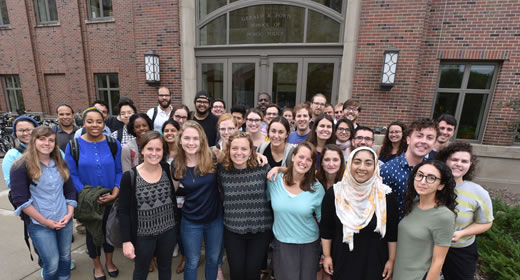
The Gerald R. Ford School of Public Policy at the University of Michigan is nationally recognized again as one of the top graduate programs in public affairs, according to the latest U.S. News & World Report rankings.
The Ford School is the number one program in the country for public policy analysis—a critical element that distinguishes social science-based programs such as the Ford School from competitors in the field of public affairs. Public policy analysis is the essential set of skills that students need to forge successful careers and have a positive impact on public policy in the nonprofit, for-profit, and governmental sectors.
The Ford School is also the number one program in the country for social policy, a position it has held in the rankings since 2012. That ranking reflects deep and long-standing strengths in poverty, inequality, labor markets, and education policy and research.
In rankings of public affairs programs, the Ford School is #7. The school is ranked #3 in health policy and management and #8 for environmental policy and management.
The rankings were released today in the magazine’s 2020 edition of “Best Graduate Schools.” The rankings reflect the opinions of deans and top faculty members at departments or schools of public affairs, collected by survey in fall 2018.
“It’s an honor to be recognized by our peer institutions for our strength,” said Michael S. Barr, Joan and Sanford Weill Dean of Public Policy. “The Ford School will continue to build on that strength—collaborating across the University of Michigan to provide excellent training for our students and to make a deep impact on the world through cutting-edge research and policy engagement.”
According to its published methodology, the magazine surveyed "deans, directors, and department chairs representing 285 master's programs in public affairs and administration; two surveys were sent to each school. Respondents were asked to rate the academic quality of master's programs on a scale of 1 (marginal) to 5 (outstanding)." For specialty ratings, “deans and other academics at public affairs schools were asked to nominate up to 10 programs for excellence in each specialty. Those with the most nominations appear.” The response rate was 52 percent.
